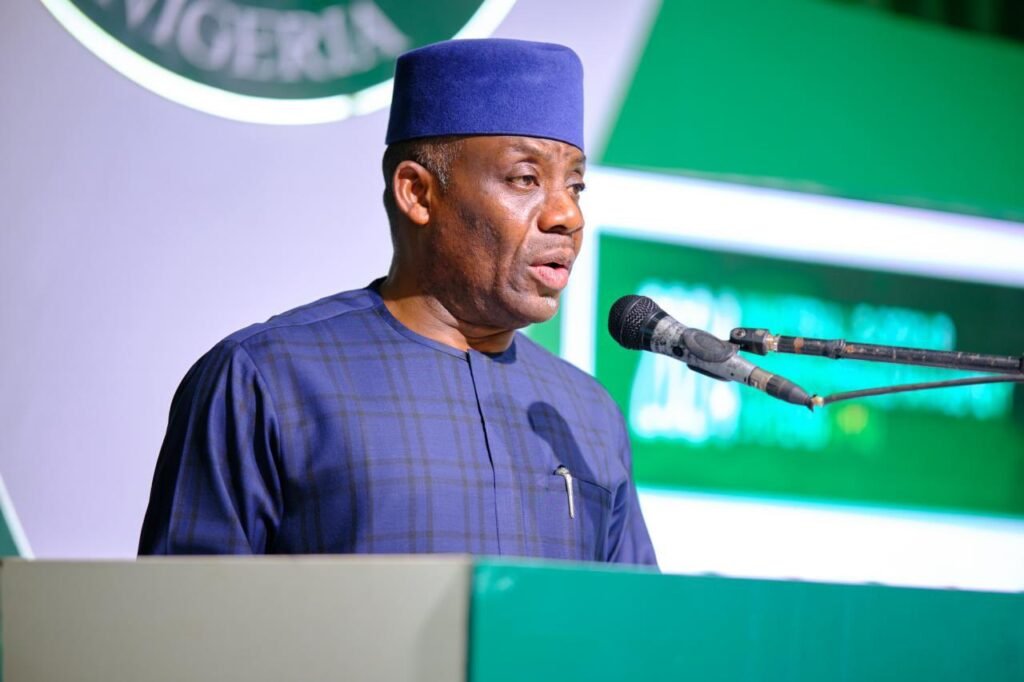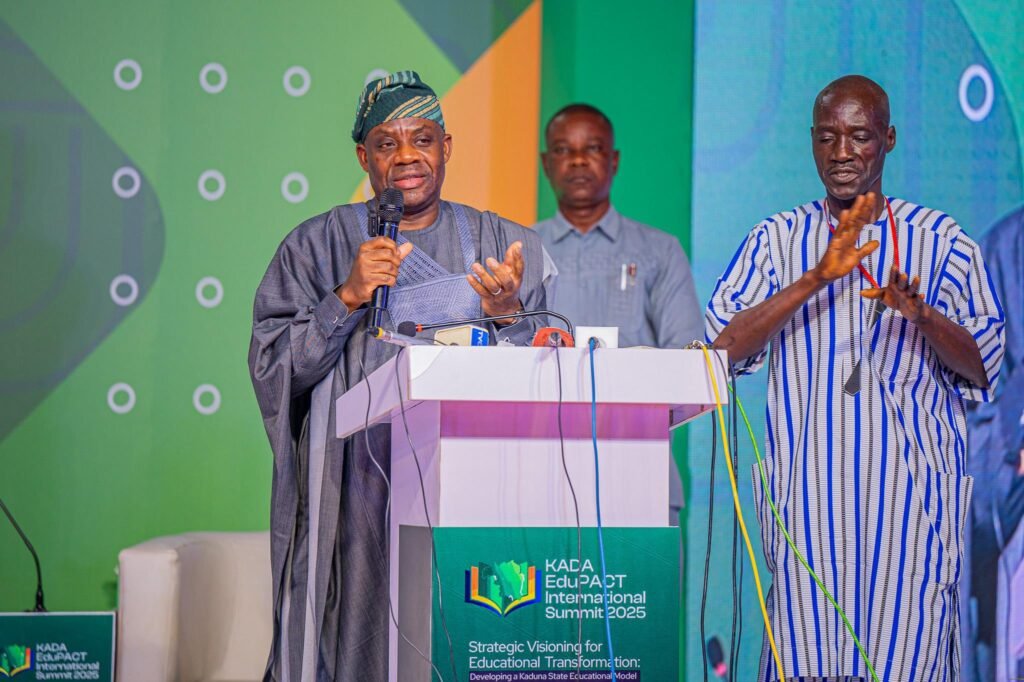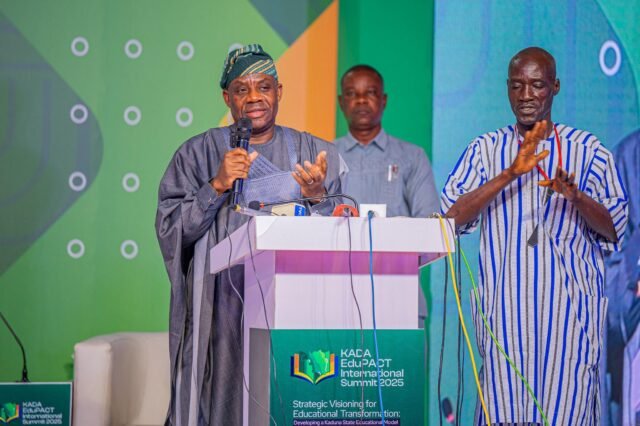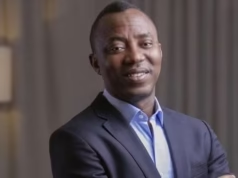Nigeria is taking bold steps toward transforming its education system through digital technology. Minister of Education, Dr. Tunji Alausa, has declared that the country is now ready to fully embrace digital learning, signalling a new era for Nigerian schools.
Speaking at the official launch of the Digitalisation of Public Schools Programme and the distribution of interactive smartboards at Queen’s College, Lagos, Alausa emphasised that the government’s renewed focus on technology is not a temporary initiative—but a long-term vision to modernise education and make learning more engaging, inclusive, and practical.
Table of Contents

From Chalkboards to Smartboards
For decades, most public schools in Nigeria have relied on chalkboards and rote memorisation. Lessons were largely teacher-centred, leaving students as passive listeners. But Alausa says that model no longer works in a world increasingly driven by technology and innovation.
“We are moving away from the old method of repeating what the teacher says,” he stated. “We want students to touch, explore, engage, and discover. That is what learning should be.”
Under the new programme, over 800 interactive smartboards have been distributed to public schools nationwide. These smartboards are designed to change the way teachers and students interact in class—by making lessons visual, collaborative, and more memorable. Teachers can use videos, images, quizzes, and simulations to explain complex topics, while students can participate directly by writing on the boards or answering questions in real-time.
Dr. Alausa explained that technology should not just make teaching easier; it should make learning better. “We are building a system where the classroom is alive with ideas, not just notes,” he said.

Building the Foundation: Teacher Training and Digital Skills
However, technology alone cannot solve the problems in Nigeria’s education sector. Alausa stressed that the human element remains the most critical. To ensure the success of digital learning, the government plans to invest heavily in training teachers to use technology effectively.
The Ministry of Education is collaborating with the Science Teachers Association of Nigeria (STAN) and several partners to train teachers in digital literacy, educational technology, and modern teaching methods. The training will help teachers understand how to integrate smartboards, tablets, and other tools into lesson plans while maintaining creativity and engagement.
Alausa also highlighted plans to establish more centres focused on Science, Technology, Engineering, Mathematics, and Medicine (STEMM), along with Technical and Vocational Education and Training (TVET) facilities. These centres will serve as innovation hubs—places where students can develop hands-on skills that match the evolving needs of Nigeria’s economy.
“Education is no longer about memorising facts,” Alausa explained. “It is about solving problems, building things, and thinking critically. Our teachers must be ready to guide students into that future.”
Bridging the Gap: Challenges of Infrastructure and Inclusivity
While the initiative has been widely praised, it also faces significant challenges—particularly in ensuring equal access for all Nigerian students.
In many rural areas, schools still lack basic facilities such as stable electricity, internet connectivity, and well-equipped classrooms. Without addressing these gaps, digital learning may remain concentrated in urban centres, widening the educational divide between urban and rural students.
Alausa acknowledged these issues and said the government is working with state education boards, private organisations, and international partners to provide the necessary infrastructure. The goal, he noted, is to ensure that every child, regardless of location or background, benefits from the digital transformation.
Another concern is inclusivity—especially for students with disabilities or those from underprivileged communities. Experts argue that successful digital education must include accessible technologies, affordable devices, and offline learning options for areas with poor connectivity.
Despite these hurdles, Alausa remains optimistic. “Challenges are part of the process,” he said. “What matters is that we are moving forward. We will bridge the gaps step by step.”

The Road Ahead: Towards a Smarter, More Connected Nigeria
The digitalisation of Nigerian schools represents more than a policy change—it’s a cultural shift. By blending technology with traditional learning, the government hopes to create a generation of students who can think independently, solve real-world problems, and compete globally.
Education experts have noted that when used effectively, digital tools can improve student engagement, reduce dropout rates, and enhance critical thinking skills. They also prepare learners for modern careers in science, technology, and innovation.
However, sustaining the initiative will require consistent funding, political commitment, and regular maintenance of equipment. If smartboards break down or internet connections fail, the entire system could stall. Analysts have urged the government to create a long-term maintenance plan and involve local communities and private companies in managing resources.
Alausa believes that collaboration will be key. “This is not just a government project—it’s a national movement,” he said. “Every stakeholder, from teachers to parents and the private sector, has a role to play.”
The initiative aligns with Nigeria’s broader digital economy goals, as outlined in the National Digital Economy Policy and Strategy. By integrating digital literacy at the classroom level, the country hopes to build a workforce capable of thriving in an increasingly technology-driven world.
As Alausa concluded his speech at Queen’s College, he summarised the vision simply: “Our goal is to raise a generation that is confident, skilled, and ready for the future. With digital learning, that future starts now.”
Join Our Social Media Channels:
WhatsApp: NaijaEyes
Facebook: NaijaEyes
Twitter: NaijaEyes
Instagram: NaijaEyes
TikTok: NaijaEyes
READ THE LATEST EDUCATION NEWS





